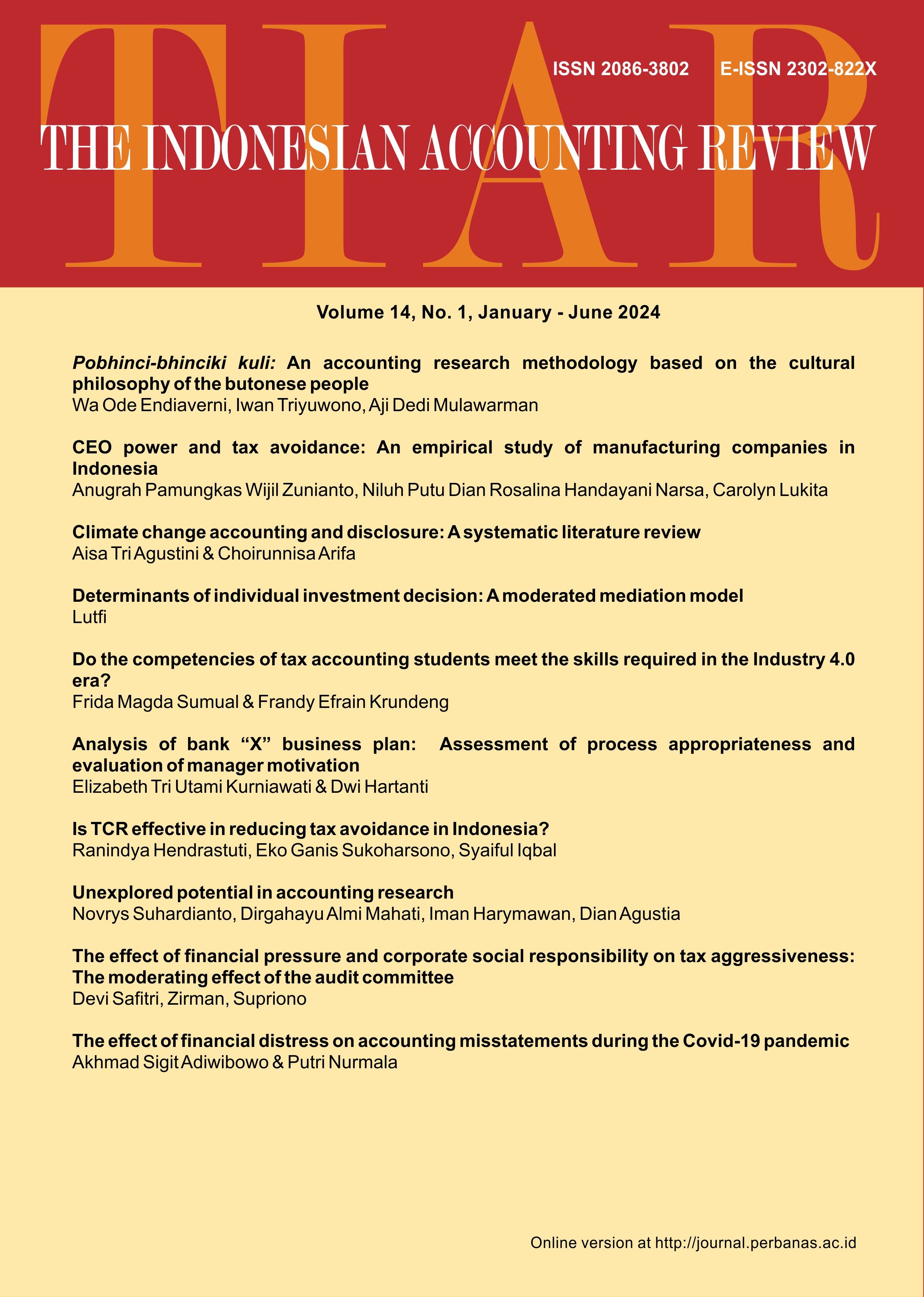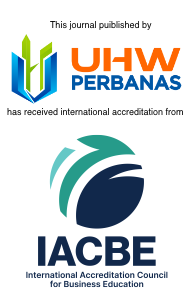Do the competencies of tax accounting students meet the skills required in the Industry 4.0 era?
DOI:
https://doi.org/10.14414/tiar.v14i1.4269Keywords:
Taxation capabilities, Digital skills, Industry 4.0, Accounting studentAbstract
In this Industry 4.0 era, many college graduates are unemployed because they do not have the competencies that suit the company’s needs. In addition, companies in the Industry 4.0 era also require workers to master the internet and technology because in this era all company business operations are automated. The accounting profession, including the tax accounting profession, has also adapted to developments in technology and the internet in carrying out its duties. Accounting students are required to be able to adapt their taxation capabilities and digital skills to the needs of companies in the Industry 4.0 era. This research is descriptive qualitative research with secondary data sourced from various literature, especially job vacancy advertisements, and primary data in the form of interviews with accounting students. The results of the analysis show that companies in the Industry 4.0 era require students to master basic skills in taxation, especially those related to Income Tax, digital tax applications issued by the Directorate General of Taxes, and data processing applications, such as Ms. Excel, and accounting applications, for example Accurate and Odoo. In general, the accounting study program curriculum is in line with company needs, but there needs to be more training programs for tax practices and accounting computer applications.
References
Abayadeera N and Watty K (2014) The ex-pectation-performance gap in generic skills in accounting graduates: Evi-dence from Sri Lanka. Asian Review of Accounting, 22(1): 56–72. https://doi.org/10.1108/ARA-09-2013-0059
Aulia, S (2018) Vocational Higher Account-ing Education in the Digital Era: Criti-cal Review Opportunies and Chal-lenge. Atlantis Press, 6.
Azalia A, Sudiman J, Maryati DU (2021) Skill Mismatch yang Dirasakan oleh Alumni Program Studi Diploma IV Akuntansi Politeknik Negeri Padang. Jurnal Akuntansi dan Manajemen 16(2): 1–21. https://akuntansi.pnp.ac.id/jam
Badan Pusat Statistik. (2022). Pengangguran terbuka menurut pendidikan tertinggi yang ditamatkan (orang) 2021-2022. Av-alable at: https://www.bps.go.id/indicator/6/674/1/-pengangguran-terbuka-menurut-pendidikan-tertinggi-yang-ditamatkan.html
Das K, Wibowo P, Chui M et al. (2019) Au-tomation and the future of work in In-donesia. McKinsey and Company.
Galizina EG, Feoktistova AB, Makushkin SA et al. (2021) Customer-Oriented Aggregators of Massive Open Online Courses: Opportunities and Pro-spects. Webology: 18(Special Issue): 420–435. https://doi.org/10.14704/WEB/V18SI05/WEB18238
International Labour Organization (2017) Indonesia jobs outlook 2017: Harnessing technology for growth and job creation. Jakarta: International Labour Office.
Kaur S and Singh G (2007) Graduates’ Em-ployability Skills. https://www.researchgate.net/publication/237439050
Kompas. (2022) Mengapa Banyak Sarjana Menganggur dan Sulit Mencari Kerja. Available at: https://money.kompas.com/read/2022/03/23/182849126/mengapa-banyak-sarjana-menganggur-dan-sulit-mencari-kerja?page=all
Mardiasmo (2019) Perpajakan. Yogyakarta: CV Andi Offset.
Novianingdyah, I. (2022) Pengetahuan pajak, persepsi mahasiswa, minat mahasiswa dalam berkarir di bidang perpajakan. Jurnal Literasi Akuntansi 2(1): 24-34.
Ramadhan SB and Hudiwinarsih G (2015) The accounting students’ perception towards accounting professions. The Indonesian Accounting Review 5(2): 179-186
Safitriawati T dan Dongoran P (2018) Pengaruh Persepsi dan Minat Maha-siswa Akuntansi Universitas Islam Syekh-Yusuf Tangerang dalam Mem-ilih Profesi sebagai Konsultan Pajak. Jurnal Ekonomi Bisnis 24(1): 93-100.
Sugeng and Prasetyo E (2021) Pilihan Karir sebagai Konsultan Pajak dengan Pelatihan Brevet Pajak Variabel Mod-erating. Jurnal Akuntansi dan Ekonomi 6(1): 1-5.
Sugiyono (2017) Metode Penelitian Kuanti-tatif, Kualitatif, dan R&D. Bandung: Alfabeta.
Stroev PV, Fattakhov RV, Pivovarova OV et al (2022) Financial University under the Government of the Russian Feder-ation. In IJACSA) International Journal of Advanced Computer Science and Applica-tions 13(9)). www.ijacsa.thesai.org
Suyanto and Julfiana U (2023) Pengaruh Motivasi dan Pengetahuan Maha-siswa Akuntansi tentang Pajak terhadap Pilihan Karir sebagai Konsultan Pajak dengan Pemahaman Tringa sebagai Variabel Moderasi. Jurnal Pendidikan Ekonomi Undiksha 15(1): 63 -71.
Tempo. (2022) 14 Percent of Unemployment are College Graduates, But Why? Availa-ble at: https://en.tempo.co/read/1604075/14-percent-of-unemployment-are-college-graduates-but-why
Tempone I, Kavanagh M, Segal N et al. (2012) Desirable generic attributes for accounting graduates into the twenty-first century: The views of employers. In Accounting Research Journal 25(1): 41–55). https://doi.org/10.1108/10309611211244519
Tinmaz H, Lee YT, Fanea-Ivanovici M et al. (2022) A systematic review on digi-tal literacy. Smart Learning Environ-ments, 9(21): 1-18. https://doi.org/10.1186/s40561-022-00204-y
Wahyudi PI (2017) Pentingnya Ket-erampilan Digital bagi Pustakawan. Available at: https://www.researchgate.net/publication/322823695_Pentingnya_Ketera mpi-lan_Digital_Literasi_Bagi_Pustakawan/link/5a71c064458515015e653 9f1/download
Downloads
Submitted
Published
How to Cite
Issue
Section
License
Copyright (c) 2024 The Indonesian Accounting Review

This work is licensed under a Creative Commons Attribution-NonCommercial 4.0 International License.

















